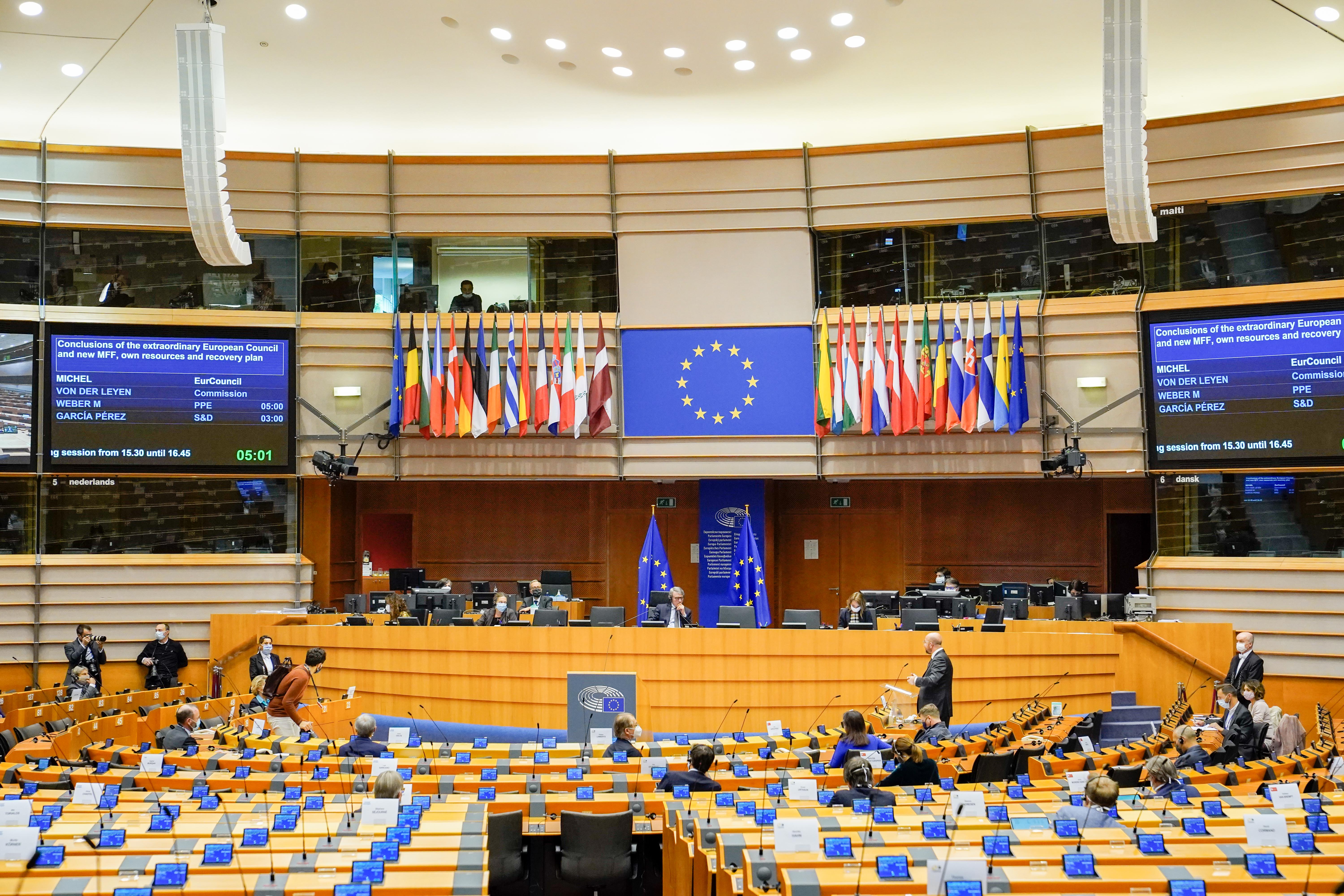
Industry, Research and Energy MEPs advocated a shift in the EU approach to industrial policy, to help businesses cope with the crisis and face the digital and environmental transitions.
MEPs call on the Commission to come up with a revised industrial strategy, in a report adopted on Friday in the Industry, Research and Energy committee. The original strategy, from March 2020, was published in the early days of the COVID-19 pandemic and before the Next Generation EU plan was set up. The new strategy should have two distinct phases, one focusing on recovery and the other on reconstruction and resilience, say MEPs.
First, the industrial strategy should contribute to recovery from the current economic crisis, and first aim to consolidate jobs, reactivate production and adapt it to a post-COVID “new normal”. The second phase should be aimed at reconstruction and transformation of the European industry.
Twin transitions: environmental and digital
The new strategy should in particular help the EU achieve climate-neutrality, deliver on the European Green Deal, manage the twin green and digital transitions and create high-quality jobs, say MEPs.
In particular, it should contain a strong social pillar and address the social consequences of structural change. The European Commission should put in place a policy facilitate economic and social revitalization of territories at risk, say MEPs, who highlight that the twin transition is an opportunity for fossil-dominated areas to move towards the frontline of innovation.
Research and innovation
MEPs also stress that industrial transformation requires a significant boost in research and development efforts, and recall Parliament’s position to increase the budget for Horizon Europe up to 120 billion euro and to ensure the program’s consistency with the Union’s climate neutrality targets.
MEPs highlight the importance of a research-based pharmaceutical industry, and reiterate the need to put in place a medicine shortage risk mitigation plan to manage any vulnerabilities and risks for the supply chain for critical medicines.
Small and Medium Businesses (SMEs)
MEPs call for particular attention to be given to the situation of SMEs, and consider that measures set up by Members States to help them cope with the current cash crunch are useful, but might in some cases increase their debt levels. They call on the Commission to support EU and national programmes incentivising capital increase and to facilitate recovery.
“I am very satisfied with the result of the vote on the Industrial Strategy’s dossier in the ITRE Committee, of which I am responsible for the European Parliament” said lead MEP Carlo Calenda (S&D, IT). “It is a dossier that touches upon all aspects of the digital and green transition, competition and management of the social effects of transformation” he said.
“The report contains strategic and, above all, pragmatic indications on the tools to be used in order to accompany organisations and workers in the coming years and protect them from the economic consequences of COVID-19”.
“It was a team effort, carried out together with all the political groups and it lasted more than a year. We now await the plenary vote, scheduled for November. It is essential that the EP gives a strong signal that directs the work of the European Commission” he added.
Next steps
The non-binding report was adopted with 52 votes to 7, with 12 abstentions. It will be put to a vote by the full House during the 23-26 November plenary session.
Background
In March 2020, the Commission presented a strategy to help Europe’s industry lead the twin transitions towards climate neutrality and digital leadership. The strategy aims to drive Europe’s competitiveness and its strategic autonomy at a time of moving geopolitical plates and increasing global competition.
However, the economic fallout from the coronavirus outbreak has dealt a symmetric shock to both supply and demand of a magnitude not seen since the Second World War. The financial health of European companies has taken a sharp turn for the worse, casting doubts on their capacity to invest.

















